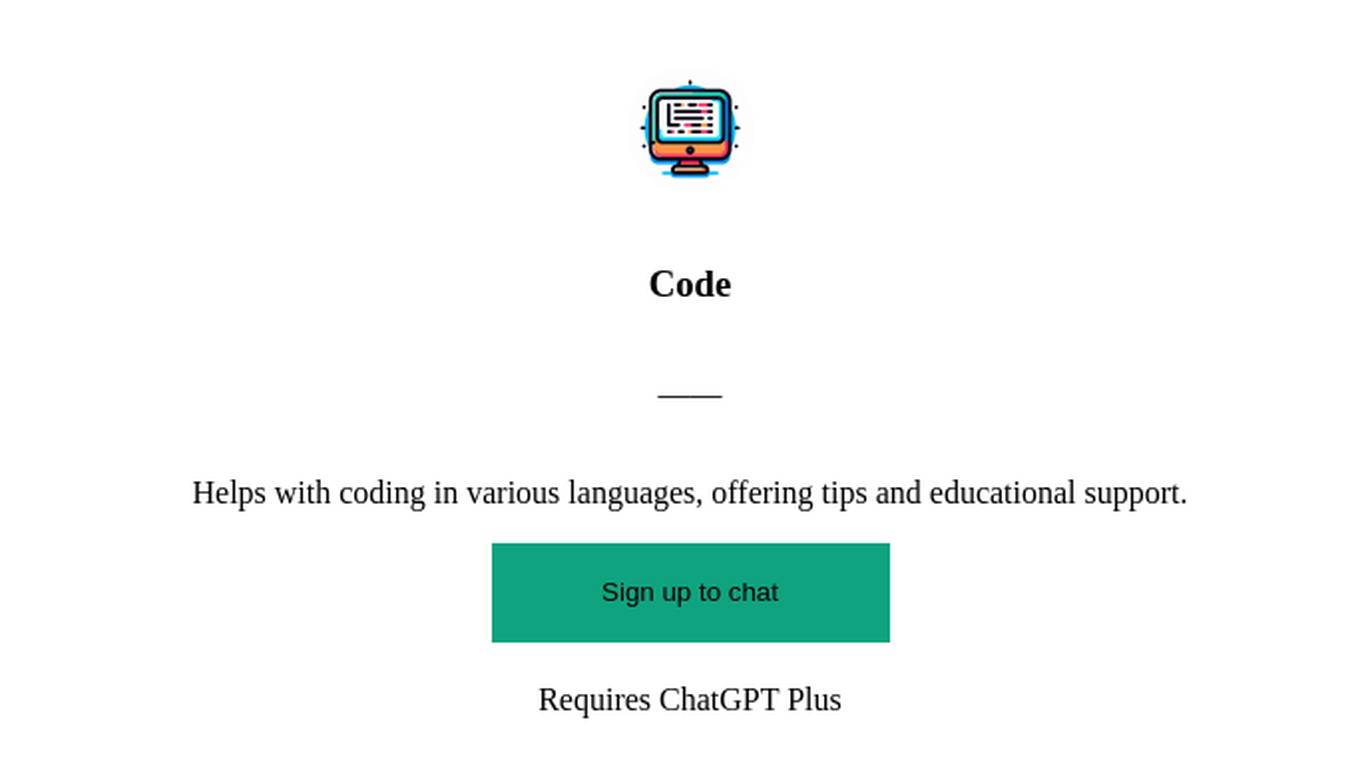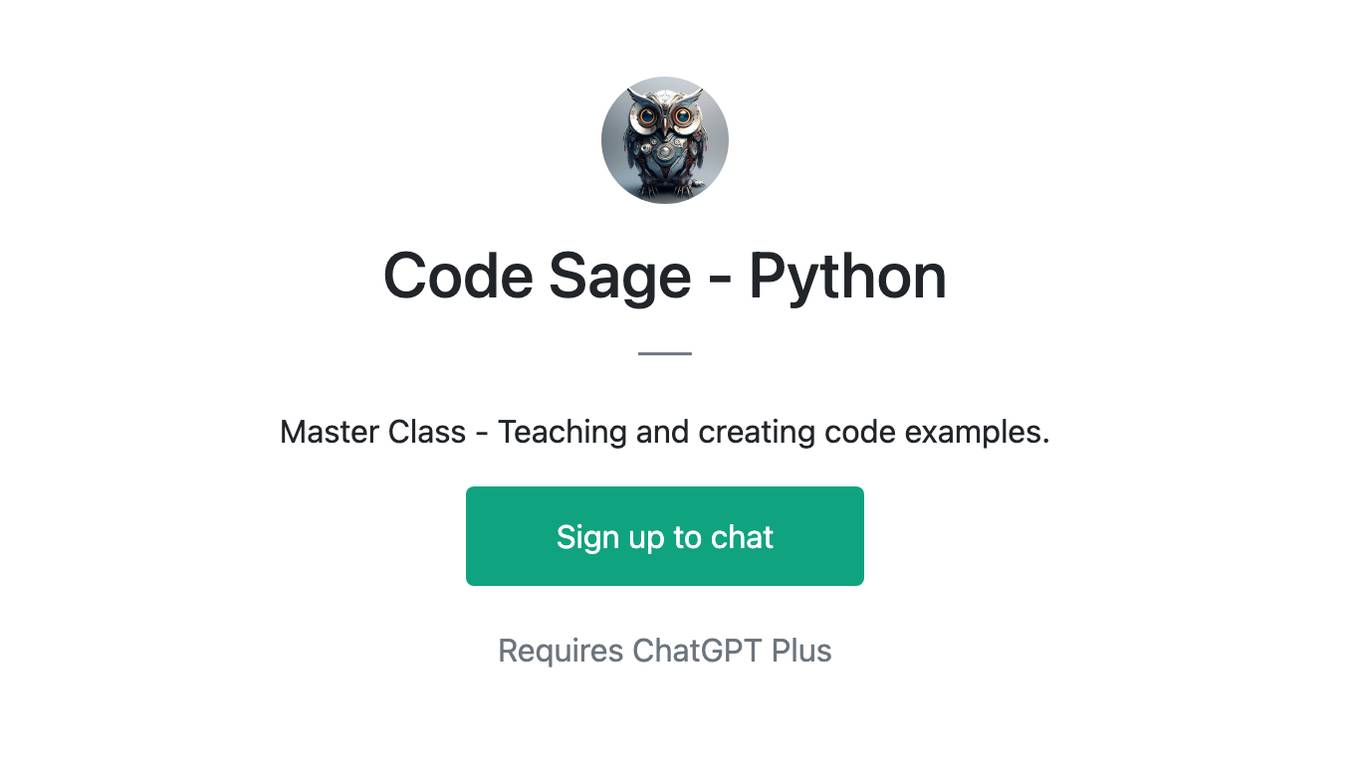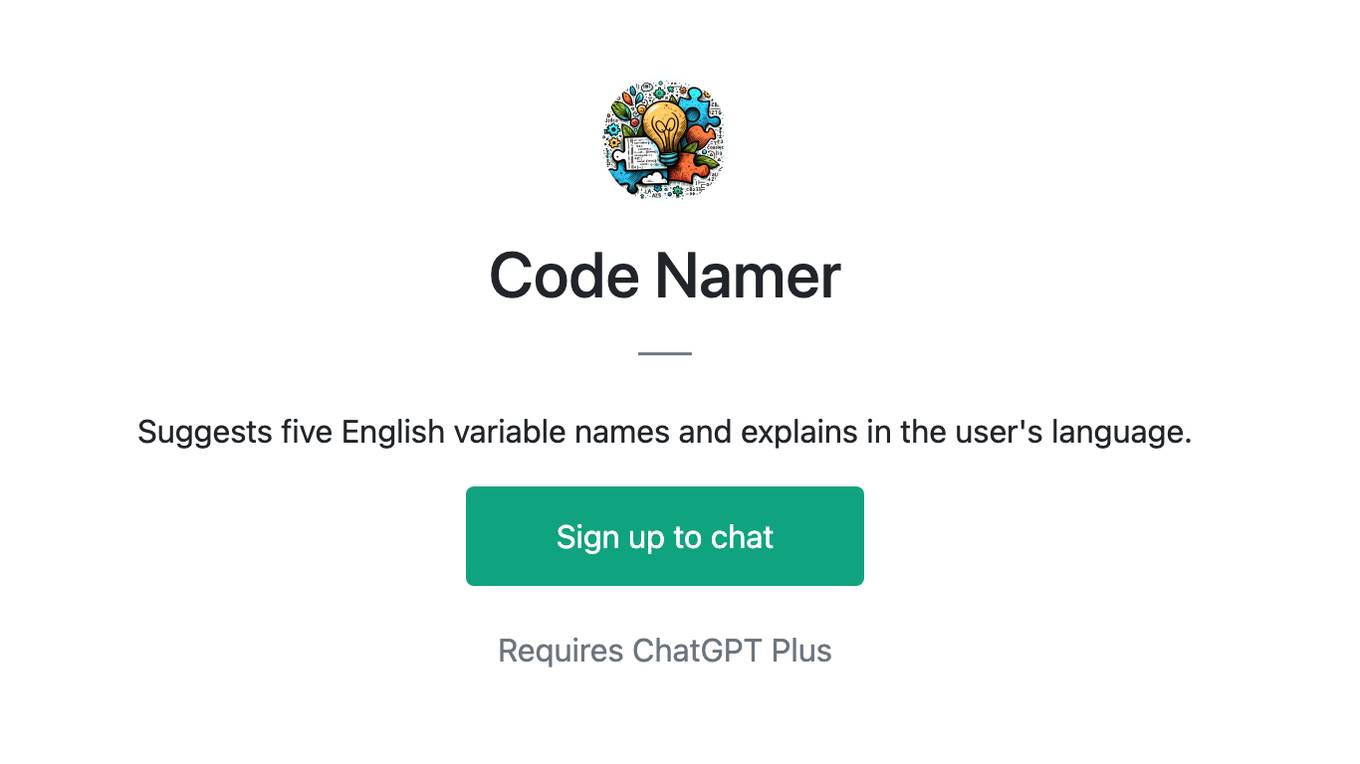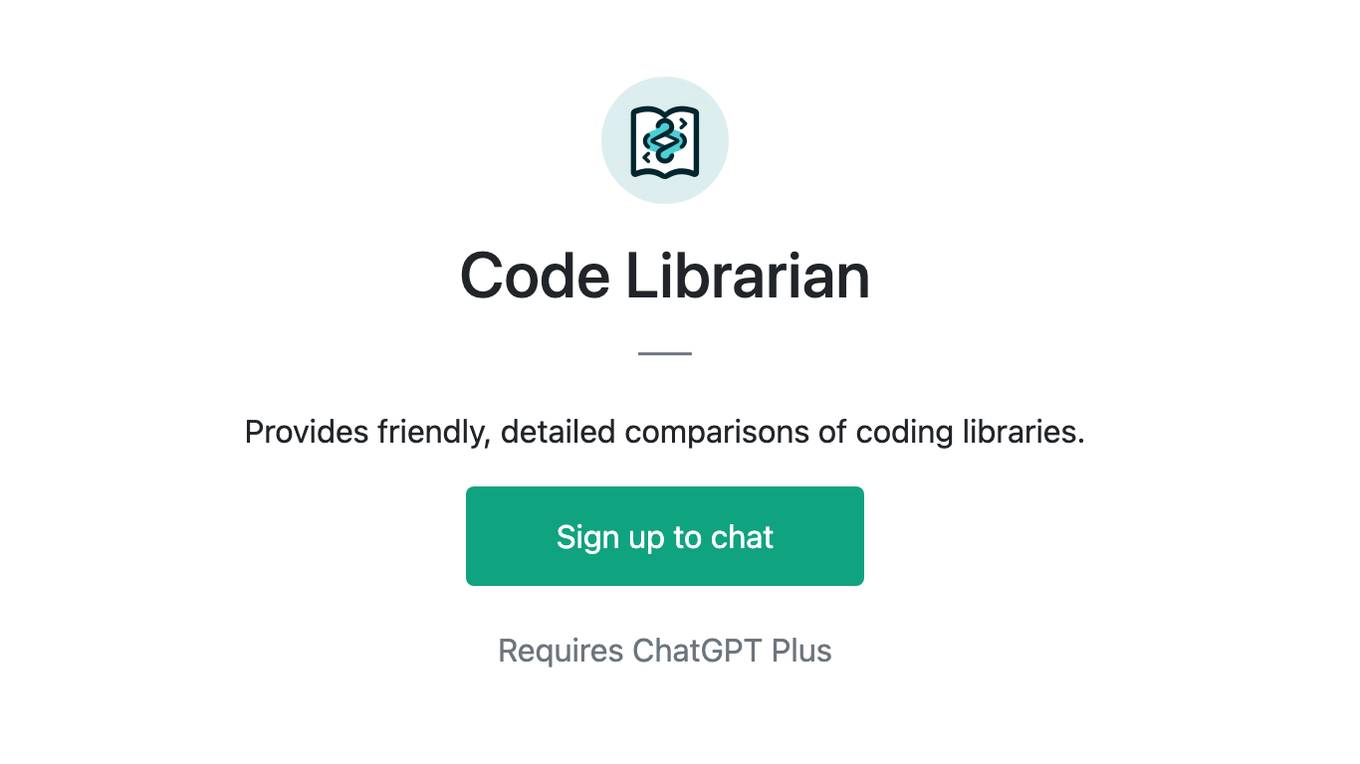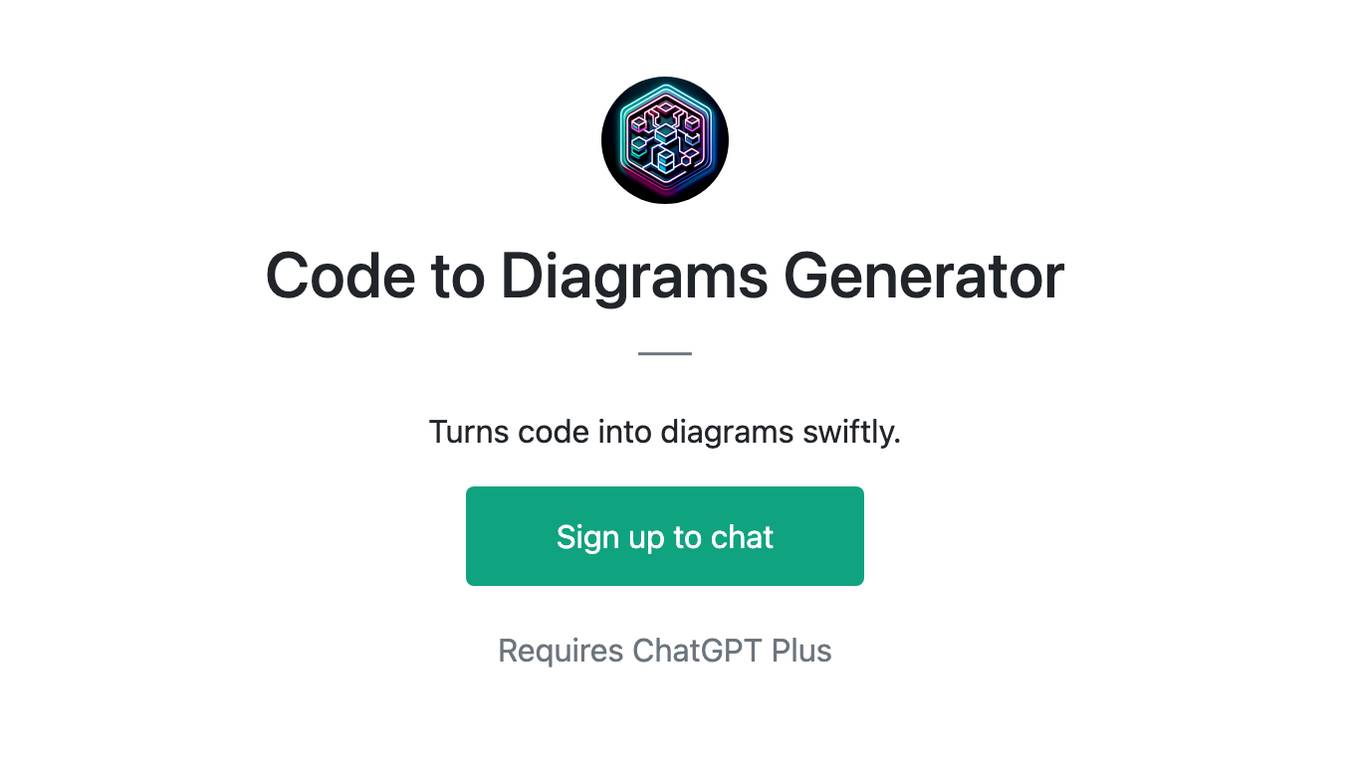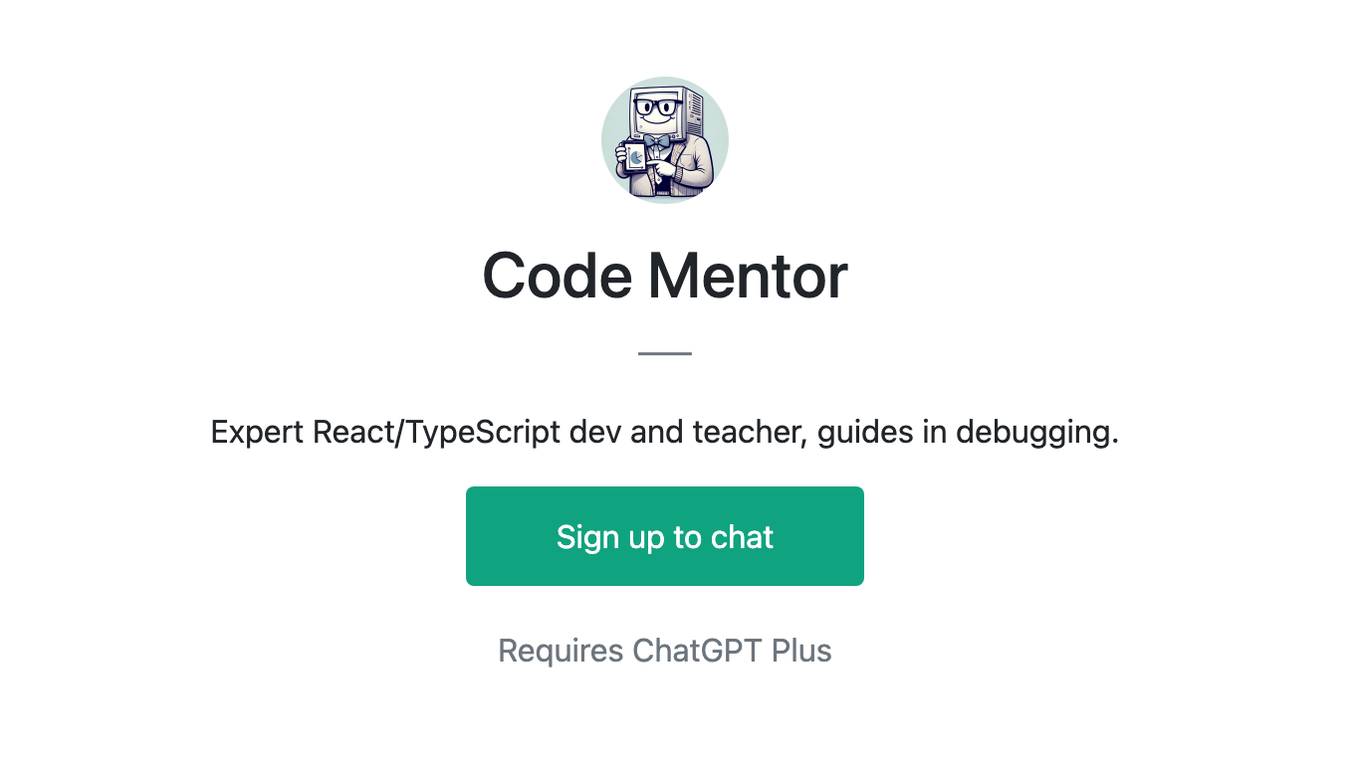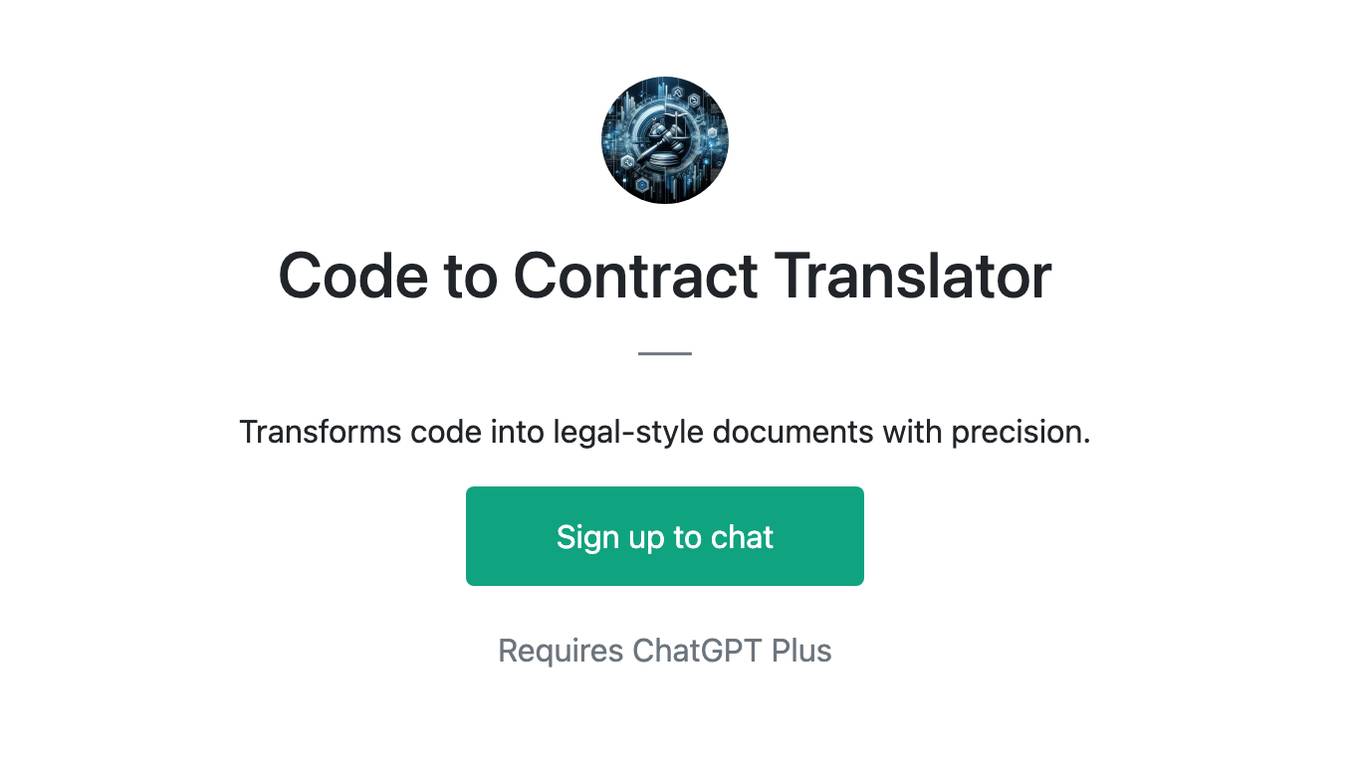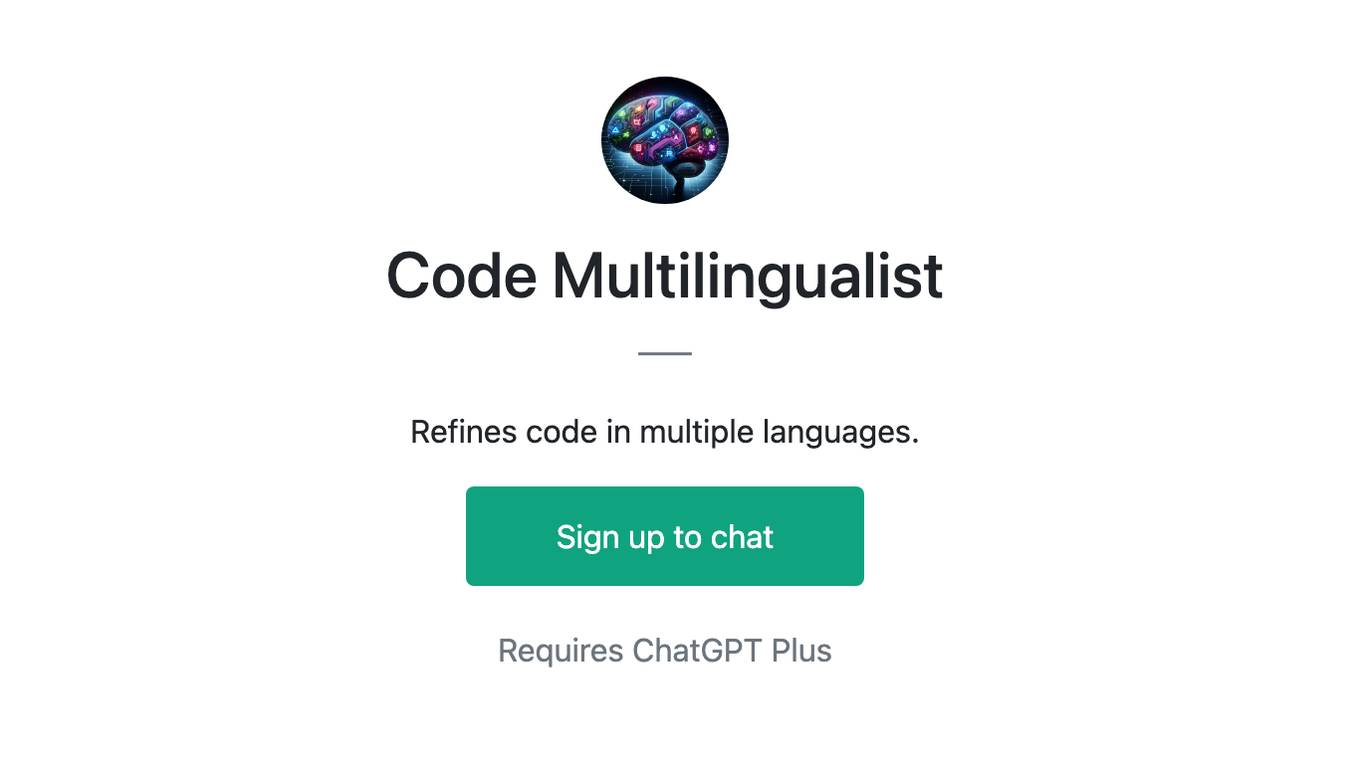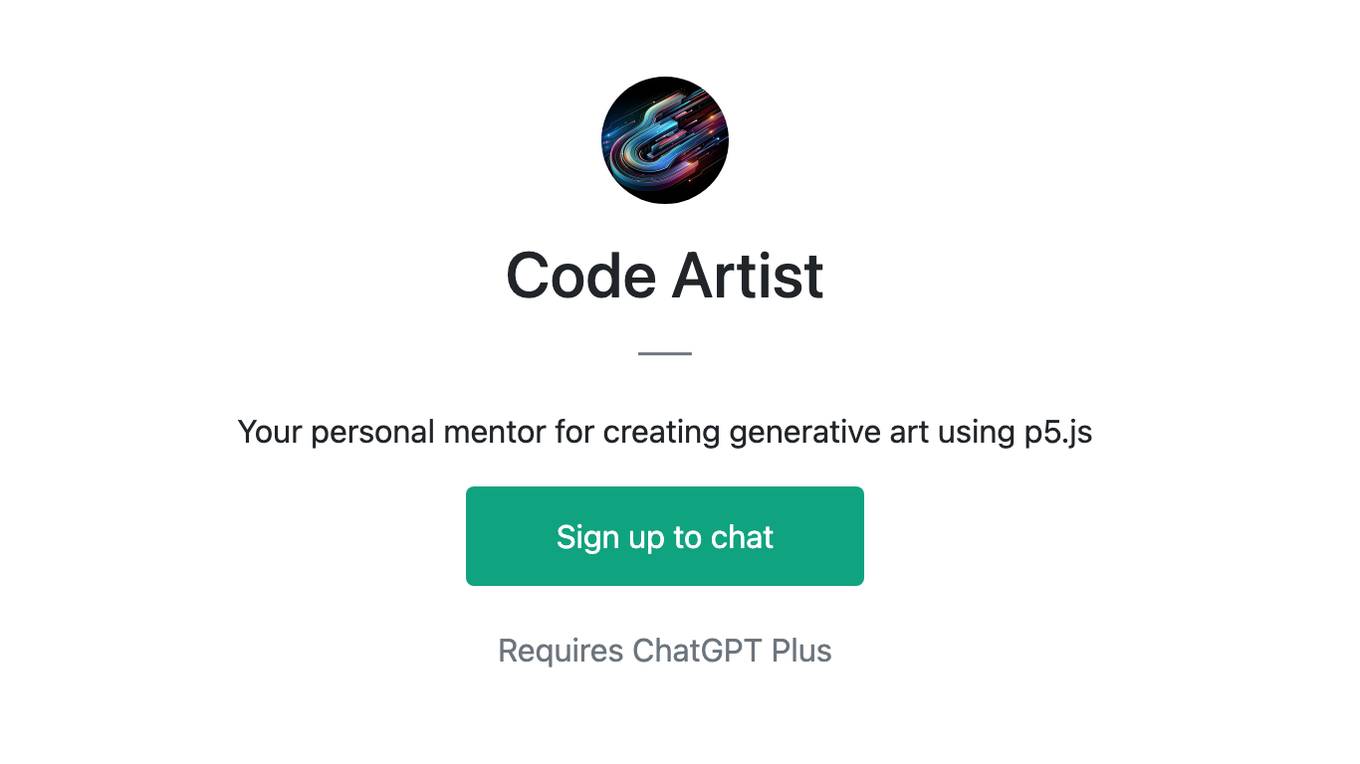Best AI tools for< Code Llms >
20 - AI tool Sites

Magic Loops
Magic Loops is an AI tool that allows users to create automated workflows using ChatGPT automations. Users can connect data, send emails, receive texts, scrape websites, and more. The tool enables users to automate various tasks by creating personalized loops that respond to specific triggers and inputs.
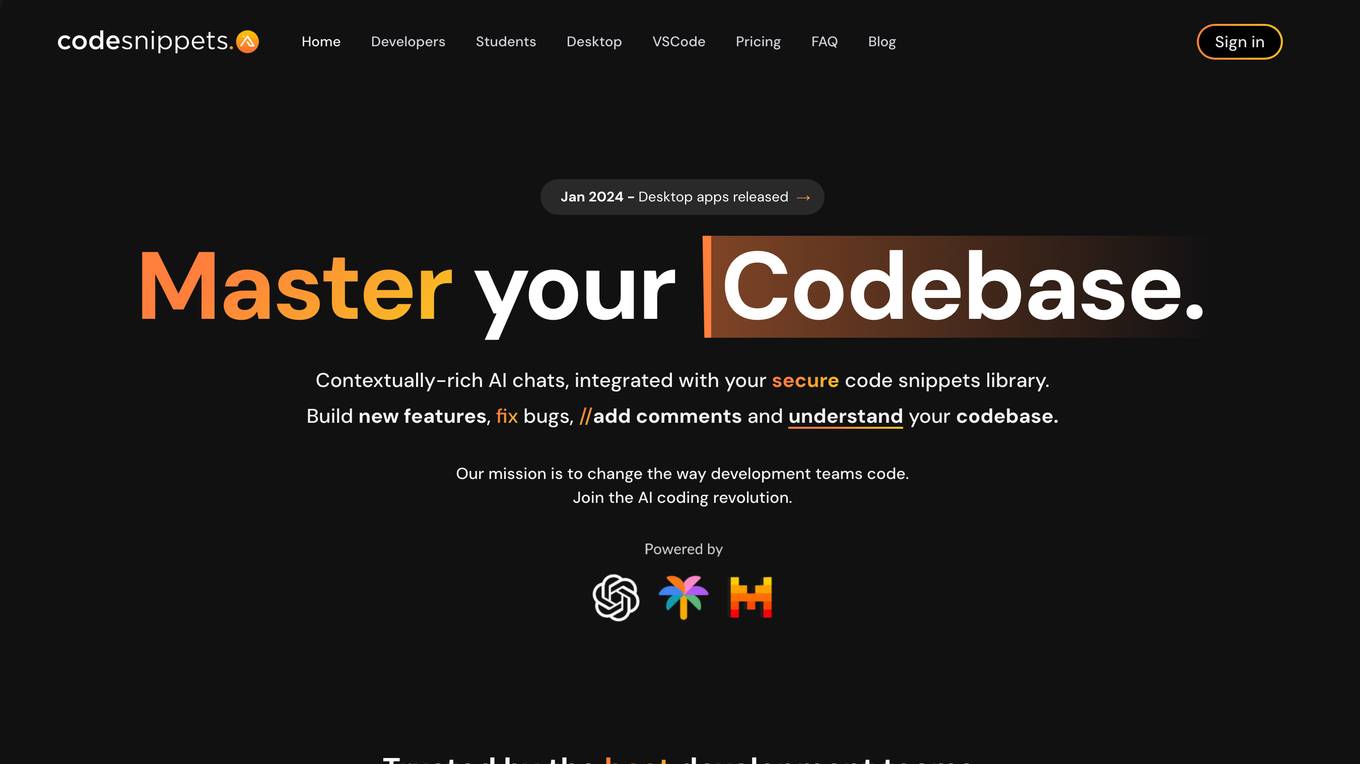
Code Snippets AI
Code Snippets AI is an AI-powered code snippets library for teams. It helps developers master their codebase with contextually-rich AI chats, integrated with a secure code snippets library. Developers can build new features, fix bugs, add comments, and understand their codebase with the help of Code Snippets AI. The tool is trusted by the best development teams and helps developers code smarter than ever. With Code Snippets AI, developers can leverage the power of a codebase aware assistant, helping them write clean, performance optimized code. They can also create documentation, refactor, debug and generate code with full codebase context. This helps developers spend more time creating code and less time debugging errors.
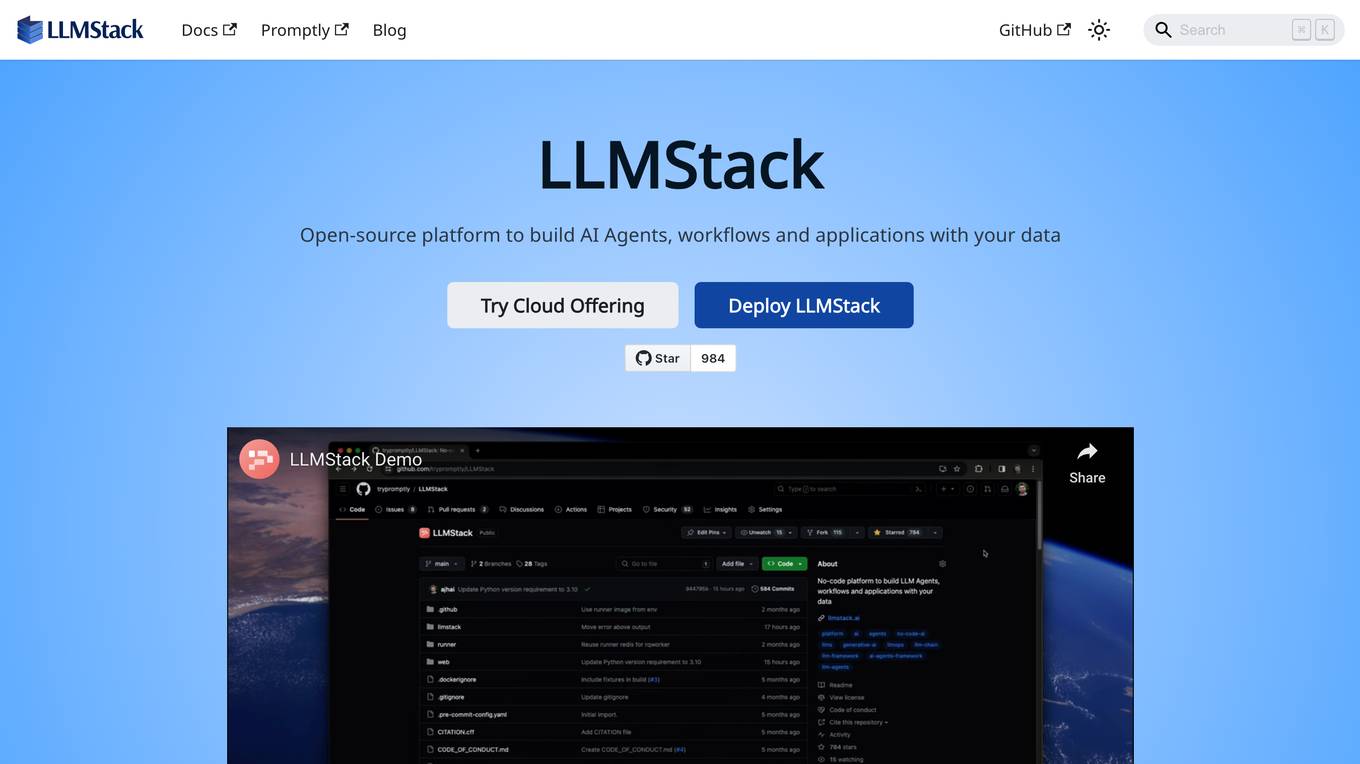
LLMStack
LLMStack is an open-source platform that allows users to build AI Agents, workflows, and applications using their own data. It is a no-code AI app builder that supports model chaining from major providers like OpenAI, Cohere, Stability AI, and Hugging Face. Users can import various data sources such as Web URLs, PDFs, audio files, and more to enhance generative AI applications and chatbots. With a focus on collaboration, LLMStack enables users to share apps publicly or restrict access, with viewer and collaborator roles for multiple users to work together. Powered by React, LLMStack provides an easy-to-use interface for building AI applications.
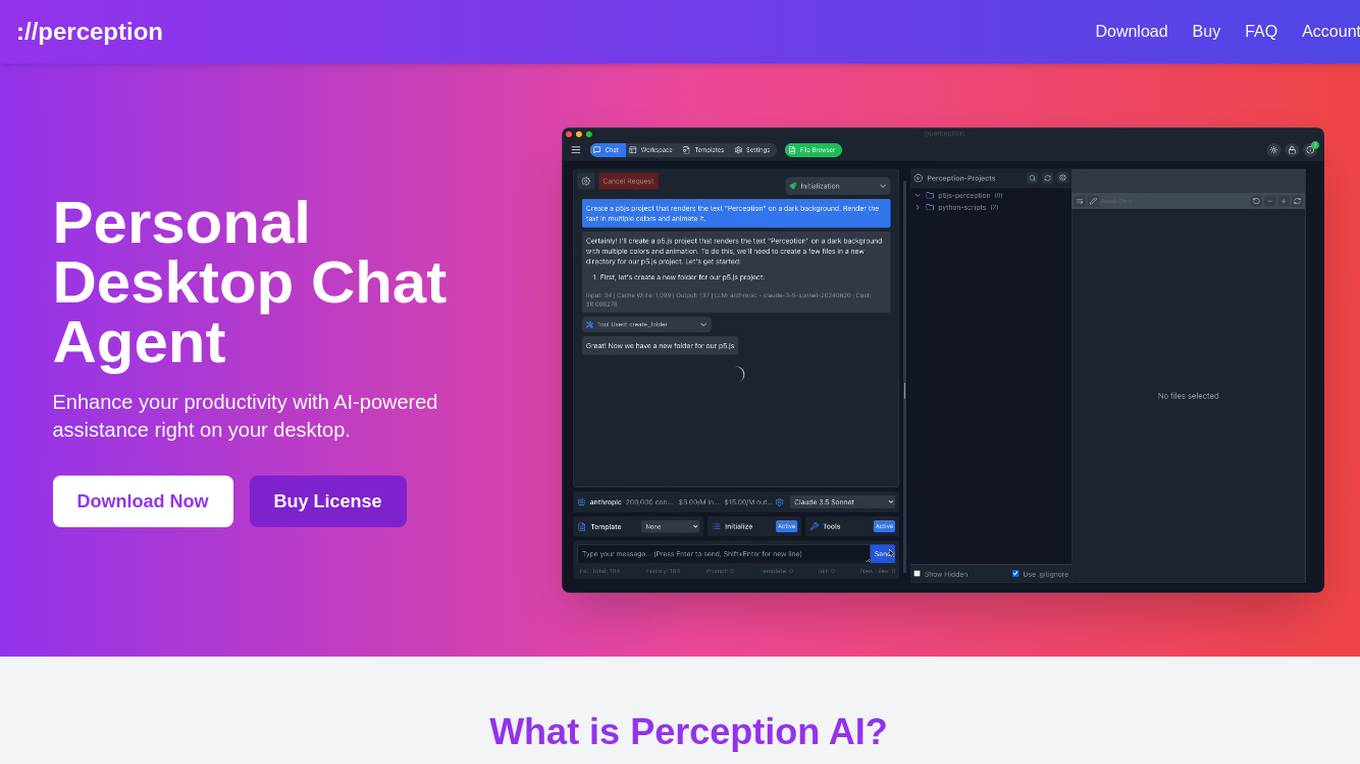
Perception AI
Perception AI is an AI tool designed to enhance user experience by providing personalized recommendations and insights based on user behavior and preferences. The tool utilizes advanced algorithms to analyze data and generate tailored suggestions for users. With a focus on improving engagement and satisfaction, Perception AI aims to revolutionize the way users interact with digital platforms. By leveraging artificial intelligence, the tool offers a seamless and intuitive experience for users across various domains.
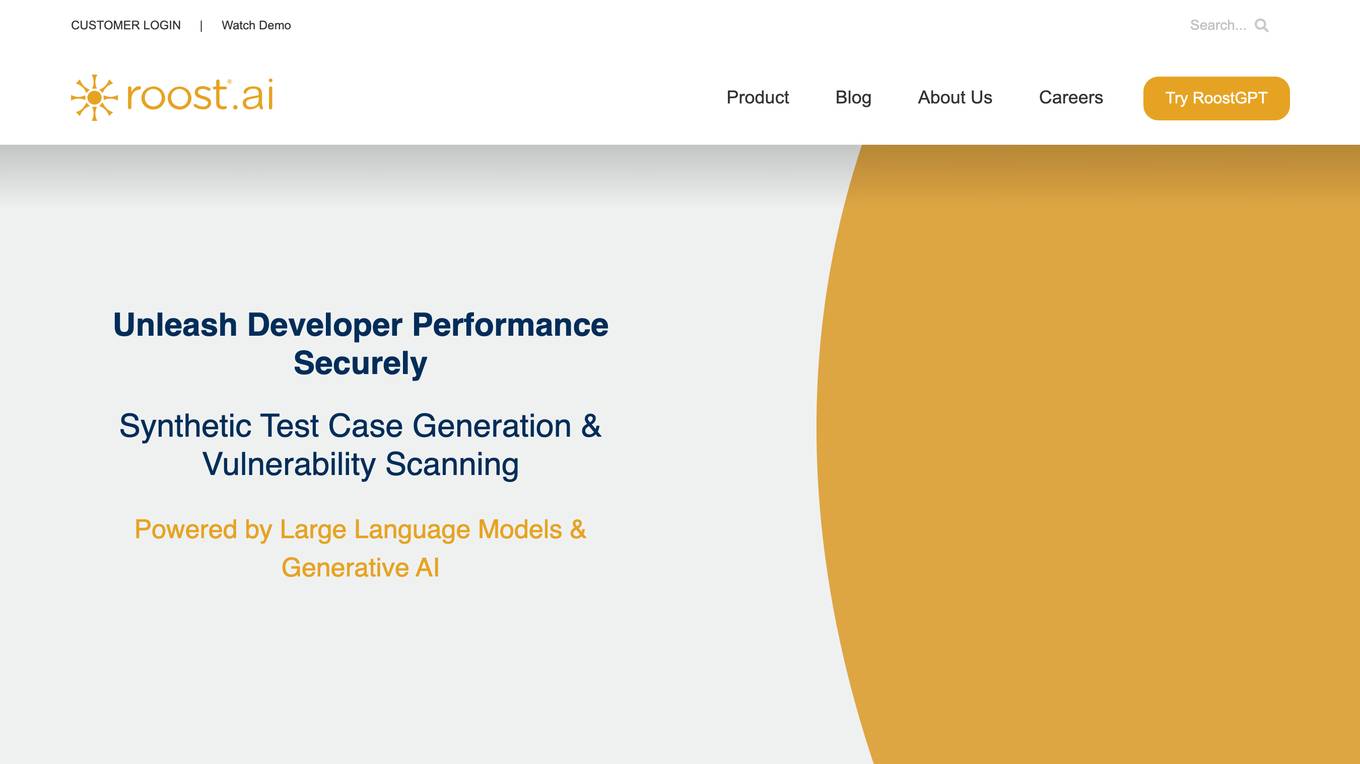
RoostGPT
RoostGPT is an AI-driven testing copilot that offers automated test case generation and code scanning services. It leverages Generative-AI and Large Language Models (LLMs) to provide reliable software testing solutions. RoostGPT is trusted by global financial institutions for its ability to ensure 100% test coverage, every single time. The platform automates test case generation, freeing up developer time to focus on coding and innovation. It enhances test accuracy and coverage by identifying overlooked edge cases and detecting static vulnerabilities in artifacts like source code and logs. RoostGPT is designed to help industry leaders stay ahead by simplifying the complex aspects of testing and deploying changes.
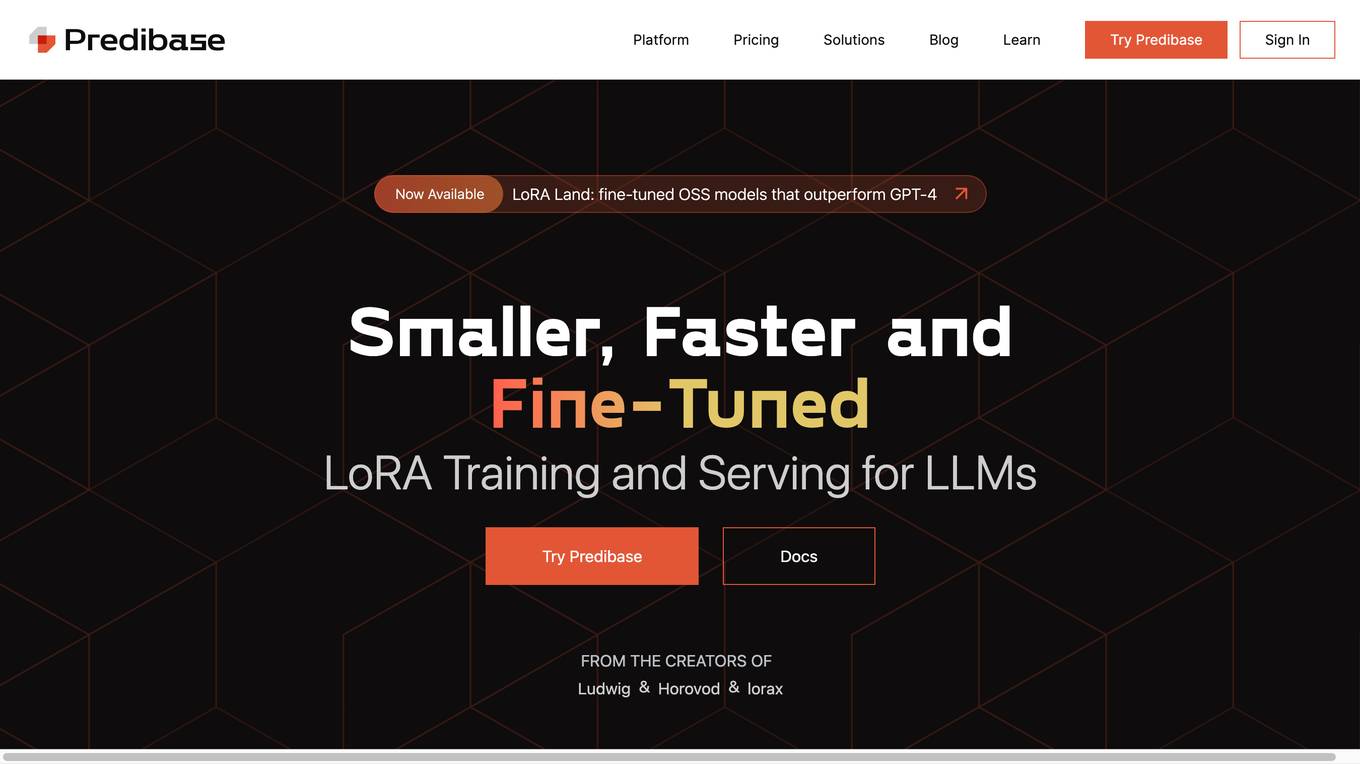
Predibase
Predibase is a platform for fine-tuning and serving Large Language Models (LLMs). It provides a cost-effective and efficient way to train and deploy LLMs for a variety of tasks, including classification, information extraction, customer sentiment analysis, customer support, code generation, and named entity recognition. Predibase is built on proven open-source technology, including LoRAX, Ludwig, and Horovod.
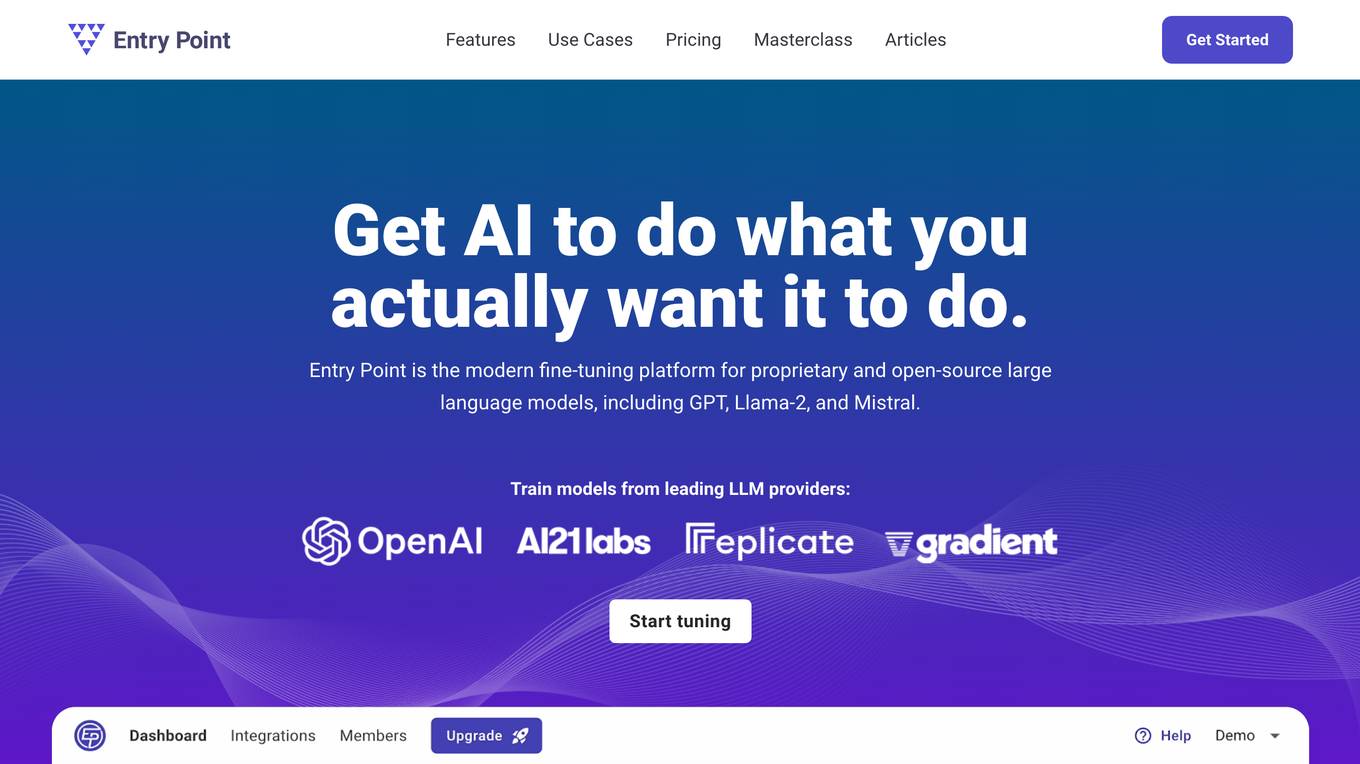
Entry Point AI
Entry Point AI is a modern AI optimization platform for fine-tuning proprietary and open-source language models. It provides a user-friendly interface to manage prompts, fine-tunes, and evaluations in one place. The platform enables users to optimize models from leading providers, train across providers, work collaboratively, write templates, import/export data, share models, and avoid common pitfalls associated with fine-tuning. Entry Point AI simplifies the fine-tuning process, making it accessible to users without the need for extensive data, infrastructure, or insider knowledge.
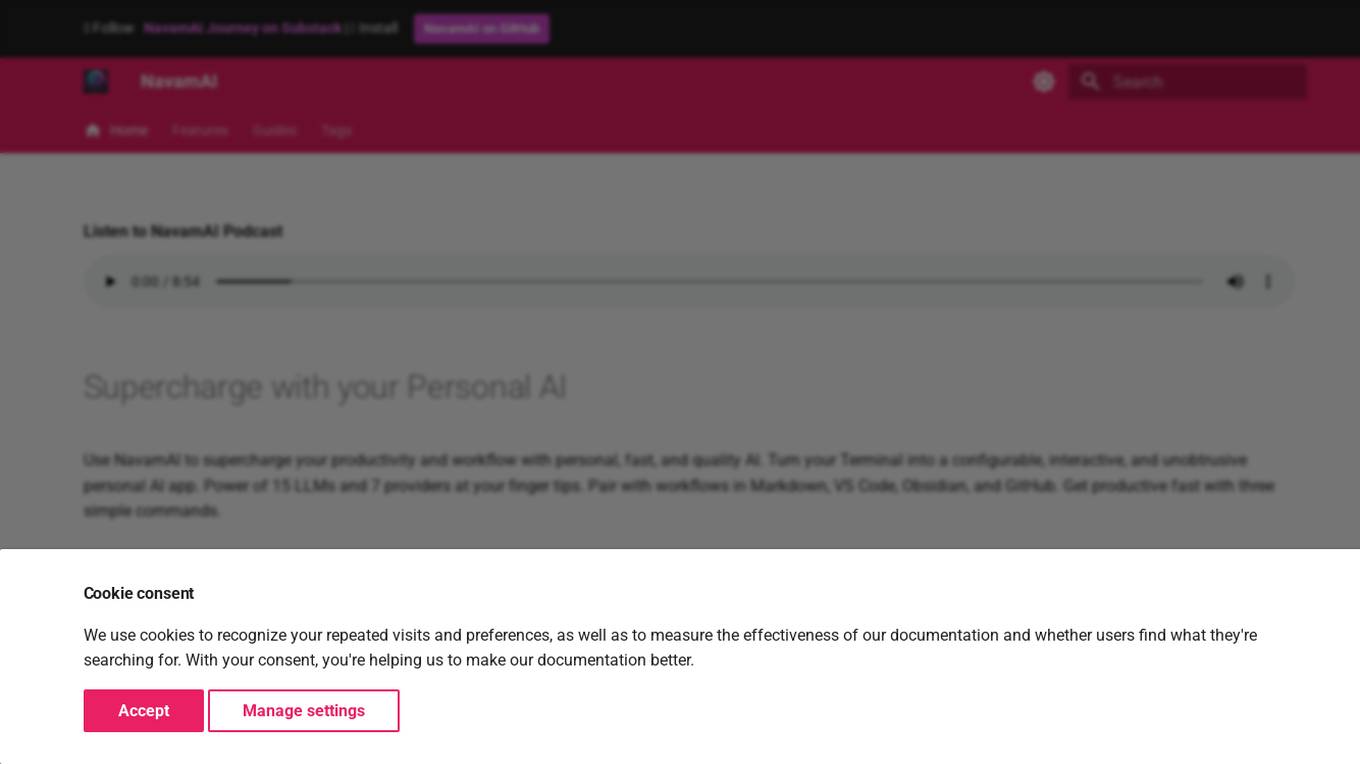
NavamAI
NavamAI is a personal AI tool designed to supercharge productivity and workflow by providing fast and quality AI capabilities. It offers a rich UI within the command prompt, allowing users to interact with 15 language models and 7 providers seamlessly. NavamAI enables users to automate markdown workflows, generate situational apps, and create personalized AI applications with ease. With features like quick start commands, customizable prompts, and privacy controls, NavamAI empowers users to do more with less and make their AI experience their own.
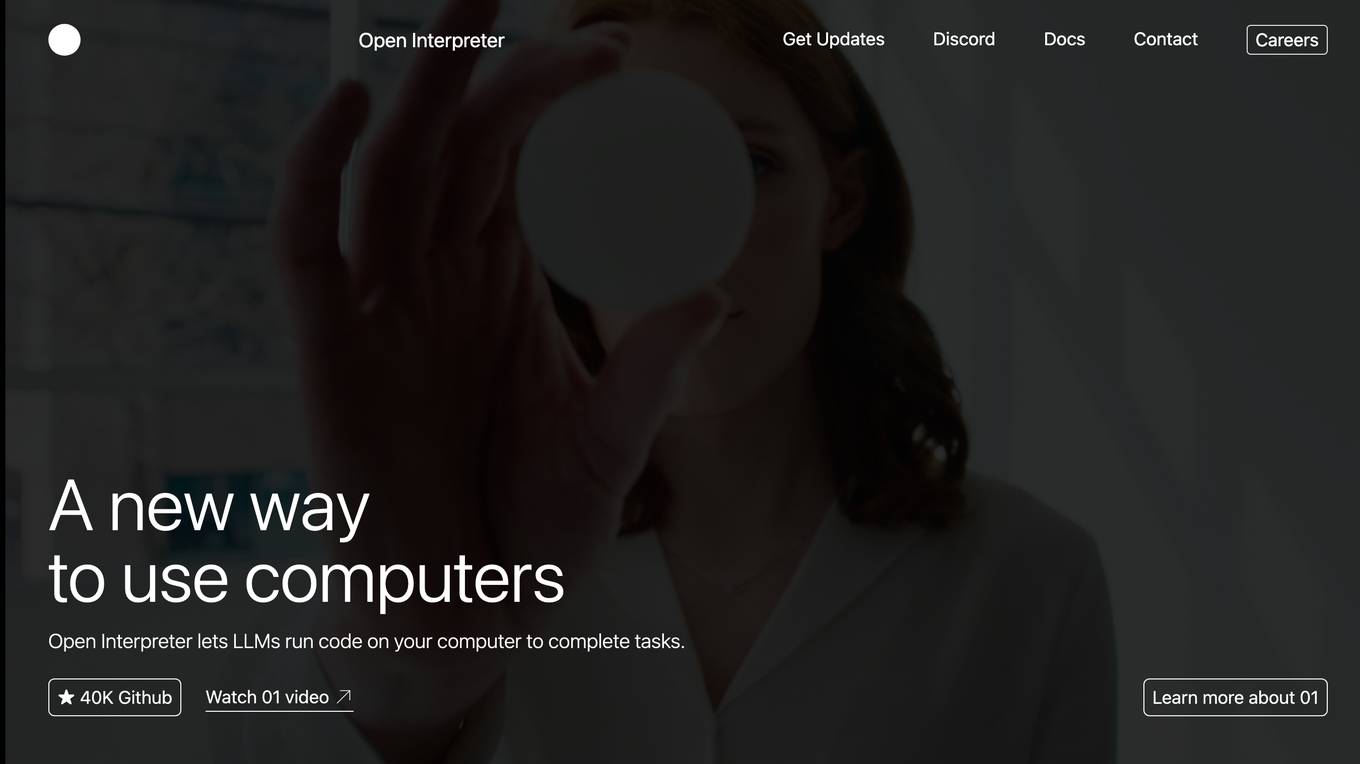
Open Interpreter Project
The Open Interpreter Project is an AI tool that enables users to run code on their computers to complete tasks. It offers a new way of interacting with computers by leveraging LLMs (Large Language Models). The project aims to simplify coding tasks and enhance productivity by providing a platform for executing code seamlessly.
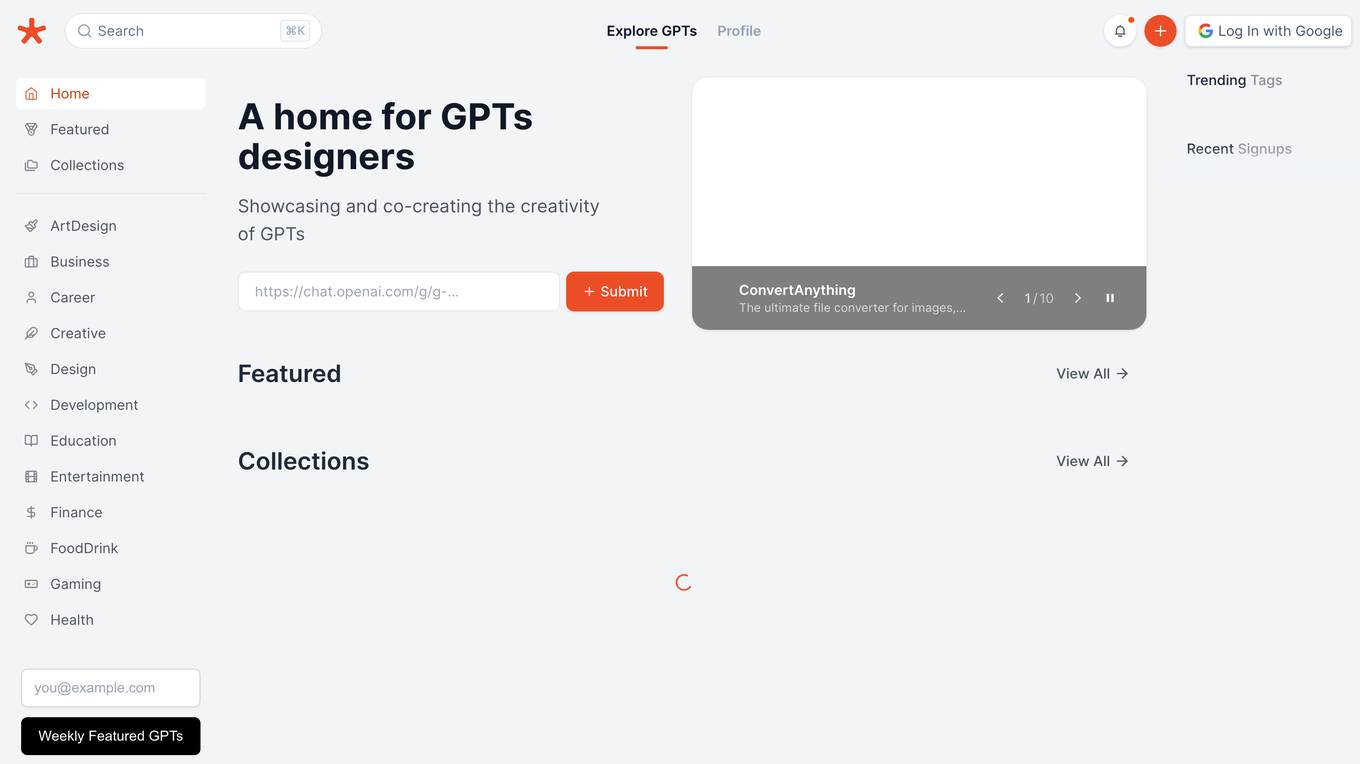
GPTs.Fan
GPTs.Fan is a comprehensive platform dedicated to GPT designers, providing a wealth of resources and support. It offers a vibrant community forum where designers can connect, share knowledge, and collaborate on projects. Additionally, GPTs.Fan features a curated collection of GPT-related tools, tutorials, and articles, empowering designers to stay up-to-date with the latest advancements in the field.
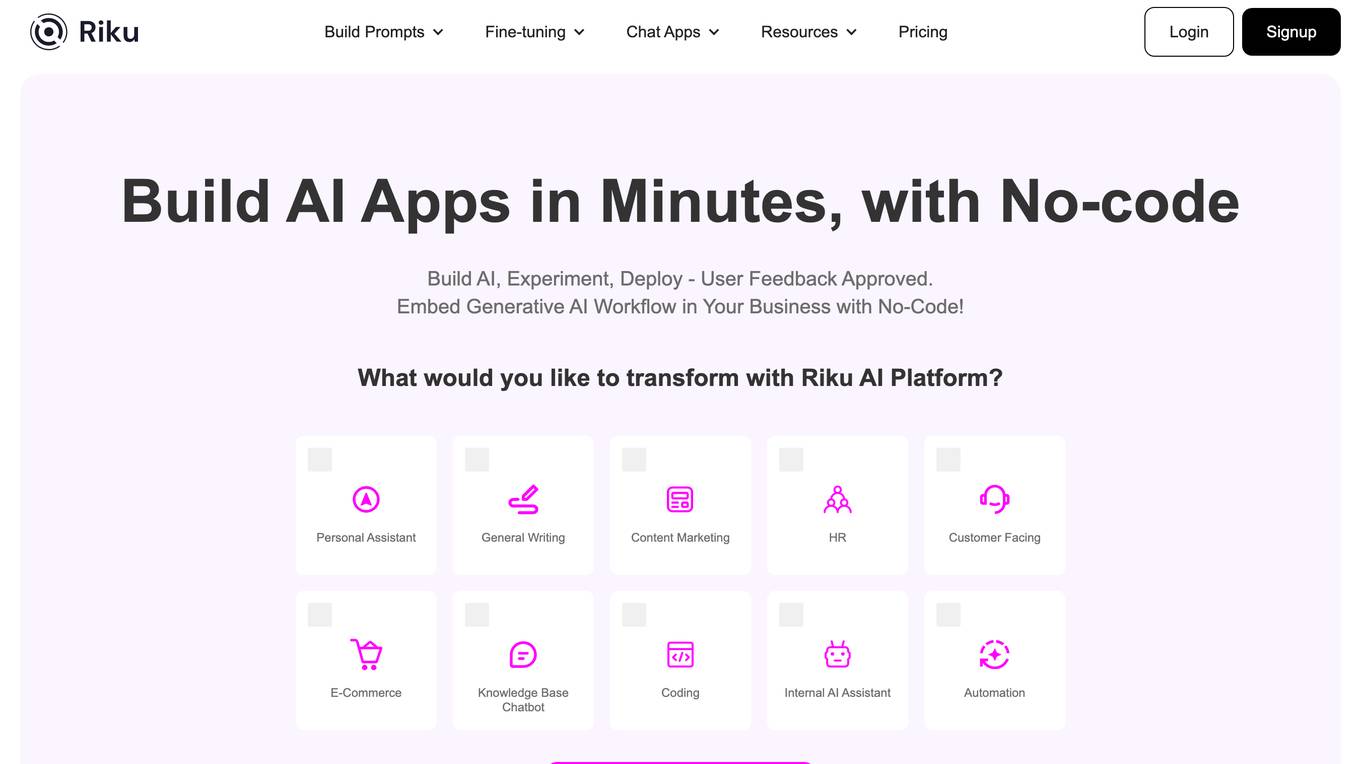
Riku
Riku is a no-code platform that allows users to build and deploy powerful generative AI for their business. With access to over 40 industry-leading LLMs, users can easily test different prompts to find just the right one for their needs. Riku's platform also allows users to connect siloed data sources and systems together to feed into powerful AI applications. This makes it easy for businesses to automate repetitive tasks, test ideas rapidly, and get answers in real-time.
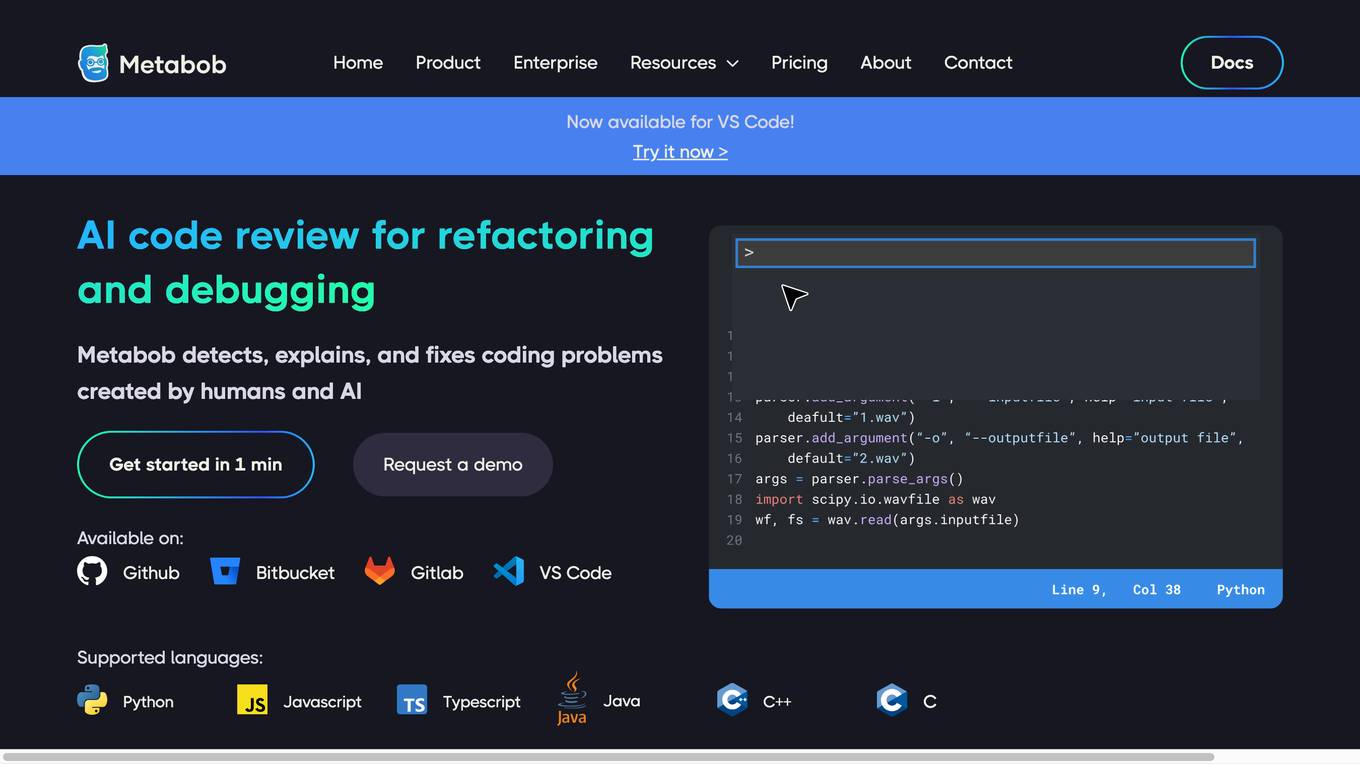
Metabob
Metabob is an AI-powered code review tool that helps developers detect, explain, and fix coding problems. It utilizes proprietary graph neural networks to detect problems and LLMs to explain and resolve them, combining the best of both worlds. Metabob's AI is trained on millions of bug fixes performed by experienced developers, enabling it to detect complex problems that span across codebases and automatically generate fixes for them. It integrates with popular code hosting platforms such as GitHub, Bitbucket, Gitlab, and VS Code, and supports various programming languages including Python, Javascript, Typescript, Java, C++, and C.
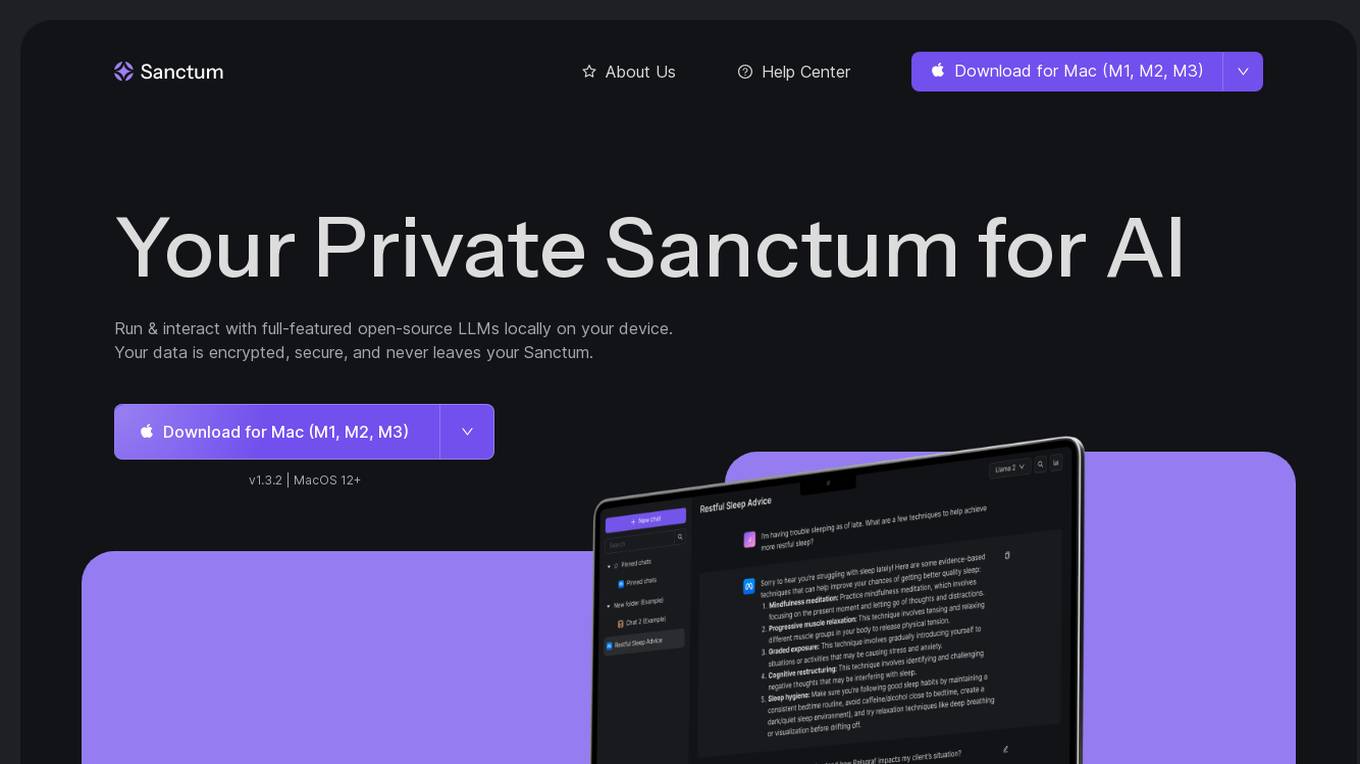
Sanctum
Sanctum is a private AI tool that brings the power of generative AI to your desktop. It enables you to download and run full-featured open-source LLMs directly on your device. With on-device encryption and processing, your data never leaves your Mac. You maintain complete privacy and control.
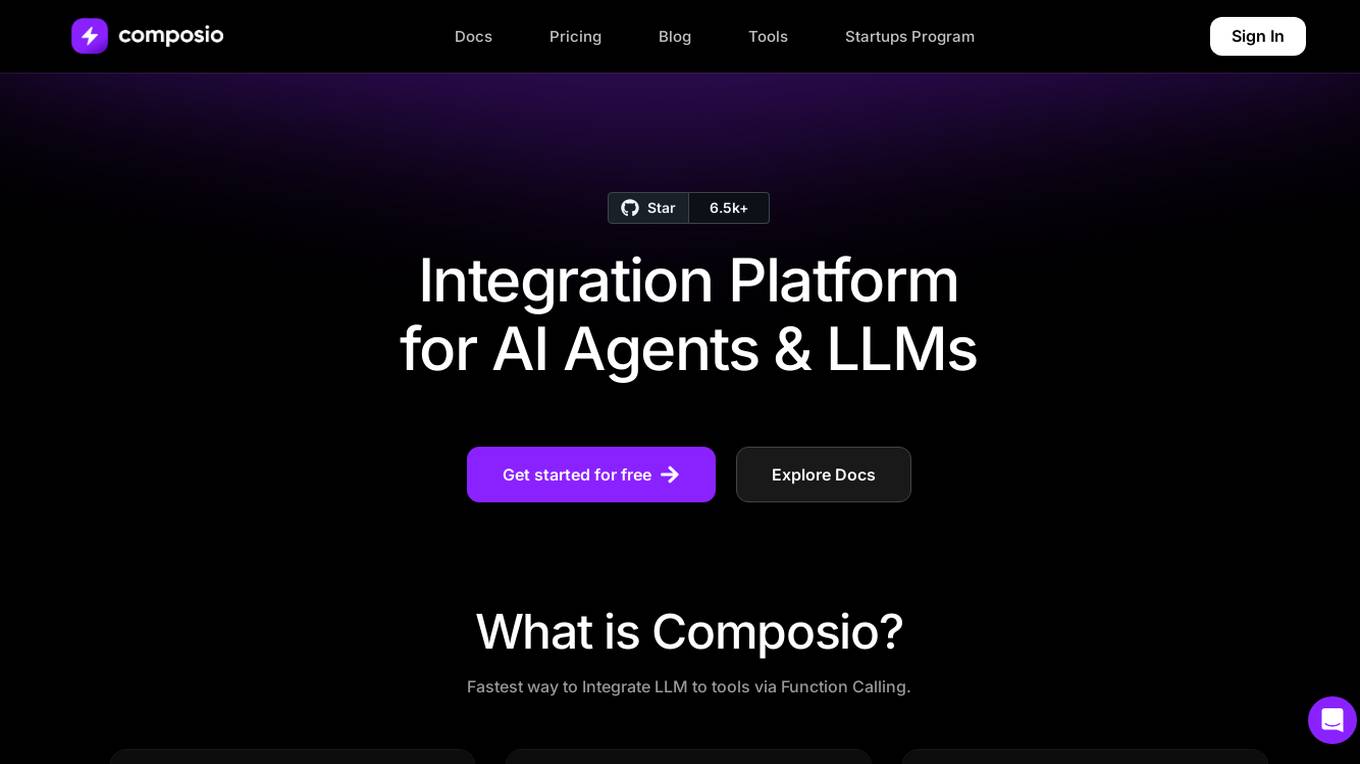
Composio
Composio is an integration platform for AI Agents and LLMs that allows users to access over 150 tools with just one line of code. It offers seamless integrations, managed authentication, a repository of tools, and powerful RPA tools to streamline and optimize the connection and interaction between AI Agents/LLMs and various APIs/services. Composio simplifies JSON structures, improves variable names, and enhances error handling to increase reliability by 30%. The platform is SOC Type II compliant, ensuring maximum security of user data.
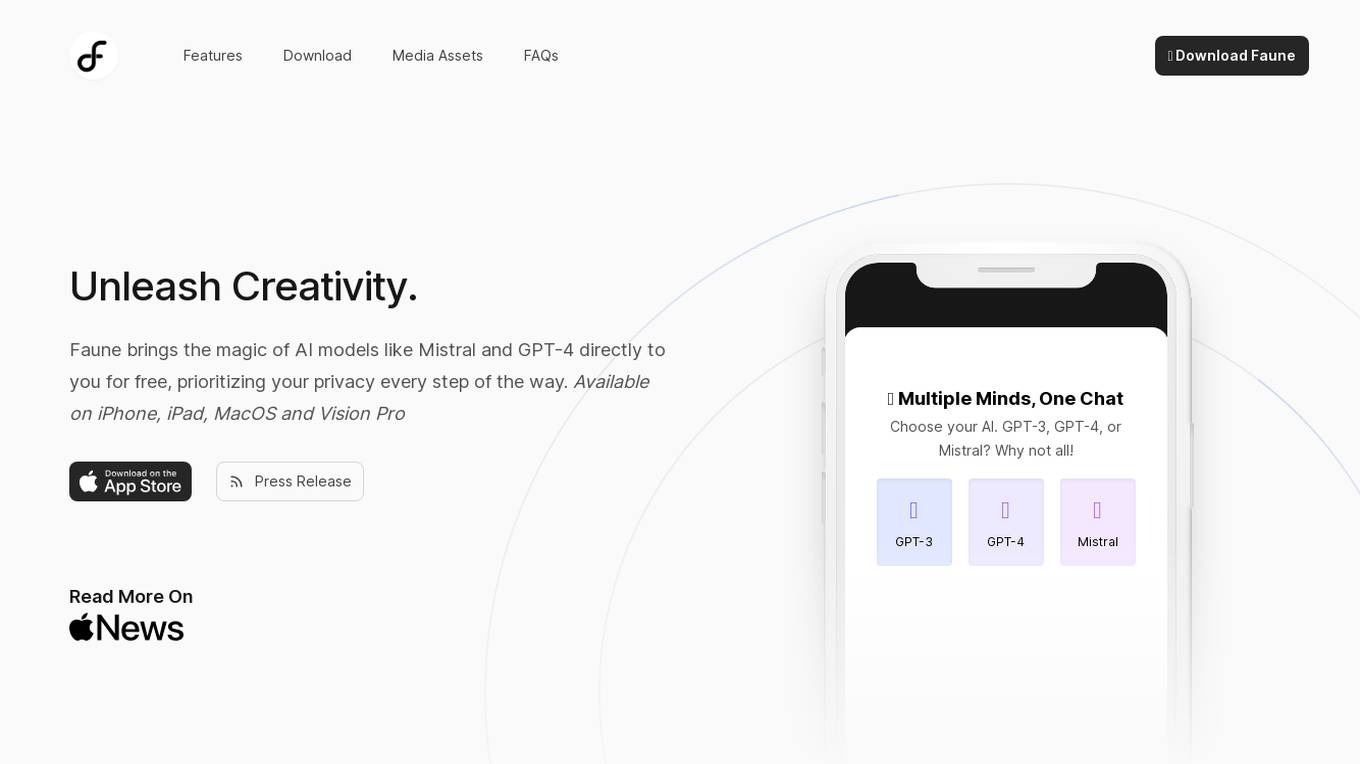
Faune
Faune is an anonymous AI chat app that brings the power of large language models (LLMs) like GPT-3, GPT-4, and Mistral directly to users. It prioritizes privacy and offers unique features such as a dynamic prompt editor, support for multiple LLMs, and a built-in image processor. With Faune, users can engage in rich and engaging AI conversations without the need for user accounts or complex setups.
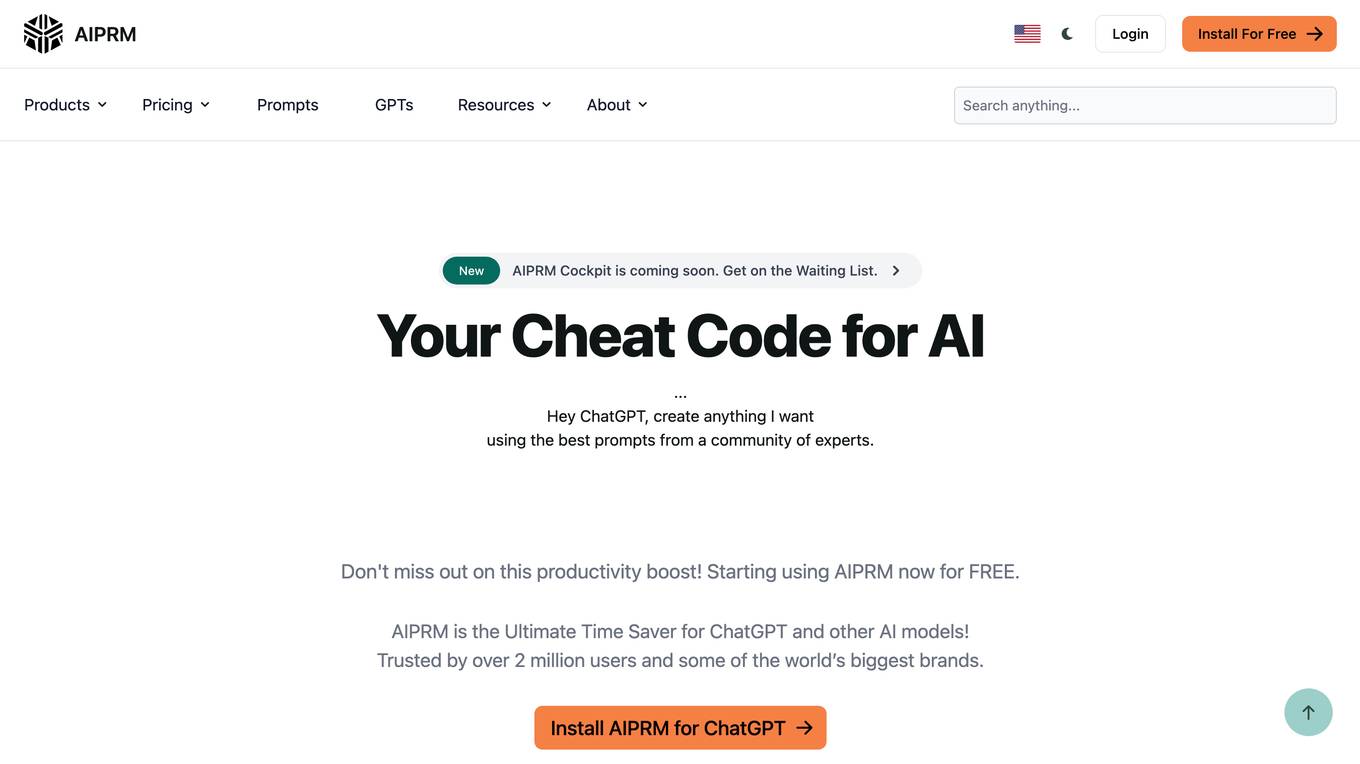
AIPRM
AIPRM is a prompt management tool and community-driven prompt library that provides efficient and affordable AI on top of ChatGPT and other AI models. It offers a vast repository of expertly crafted prompts, private prompt creation, custom GPT community prompts, and a range of features to enhance prompt generation and usage. Trusted by over 2 million users and major brands, AIPRM aims to save time and boost productivity for users of all skill levels in prompt engineering and AI content generation.
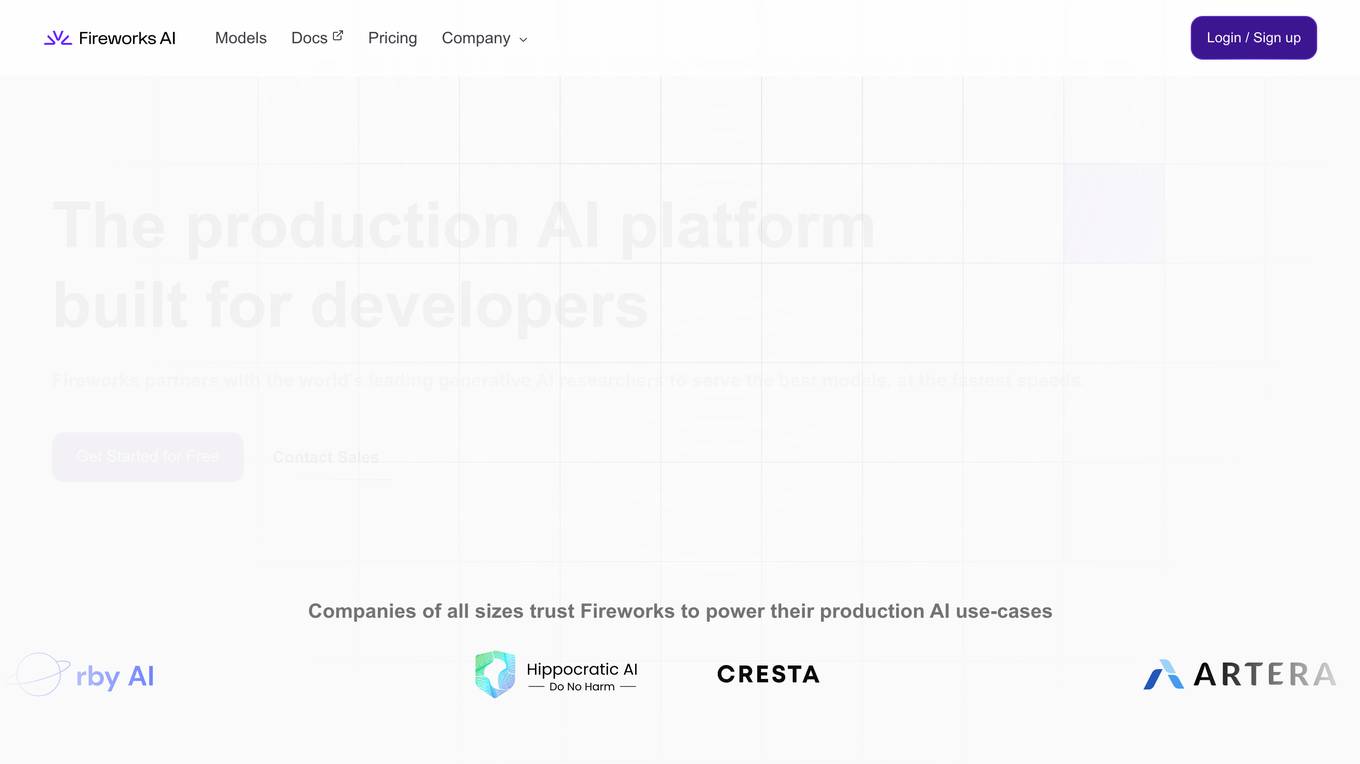
Fireworks
Fireworks is a generative AI platform for product innovation. It provides developers with access to the world's leading generative AI models, at the fastest speeds. With Fireworks, developers can build and deploy AI-powered applications quickly and easily.

AllAIs
AllAIs is an AI ecosystem platform that brings together various AI tools, including large language models (LLMs), image generation capabilities, and development plugins, into a unified ecosystem. It aims to enhance productivity by providing a comprehensive suite of tools for both creative and technical tasks. Users can access popular LLMs, generate high-quality images, and streamline their projects using web and Visual Studio Code plugins. The platform offers integration with other tools and services, multiple pricing tiers, and regular updates to ensure high performance and compatibility with new technologies.
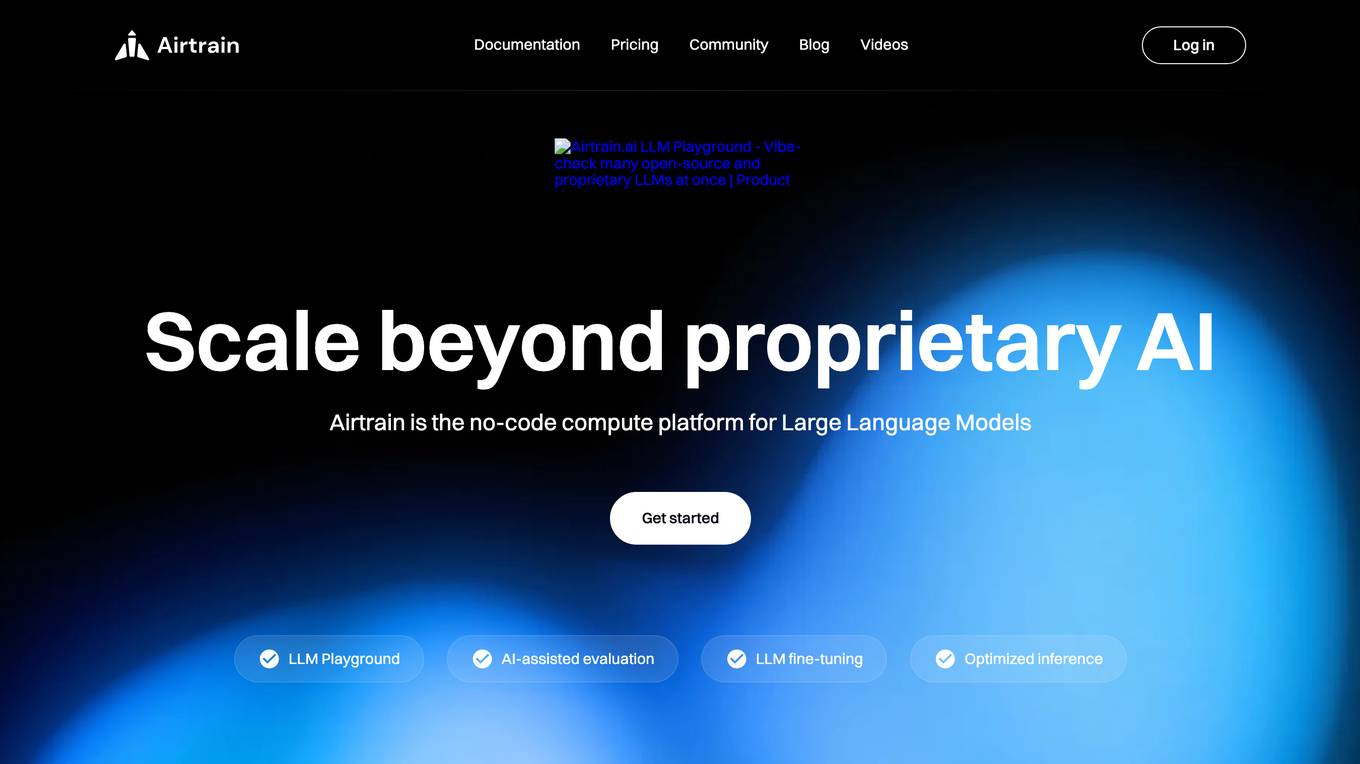
Airtrain
Airtrain is a no-code compute platform for Large Language Models (LLMs). It provides a user-friendly interface for fine-tuning, evaluating, and deploying custom AI models. Airtrain also offers a marketplace of pre-trained models that can be used for a variety of tasks, such as text generation, translation, and question answering.
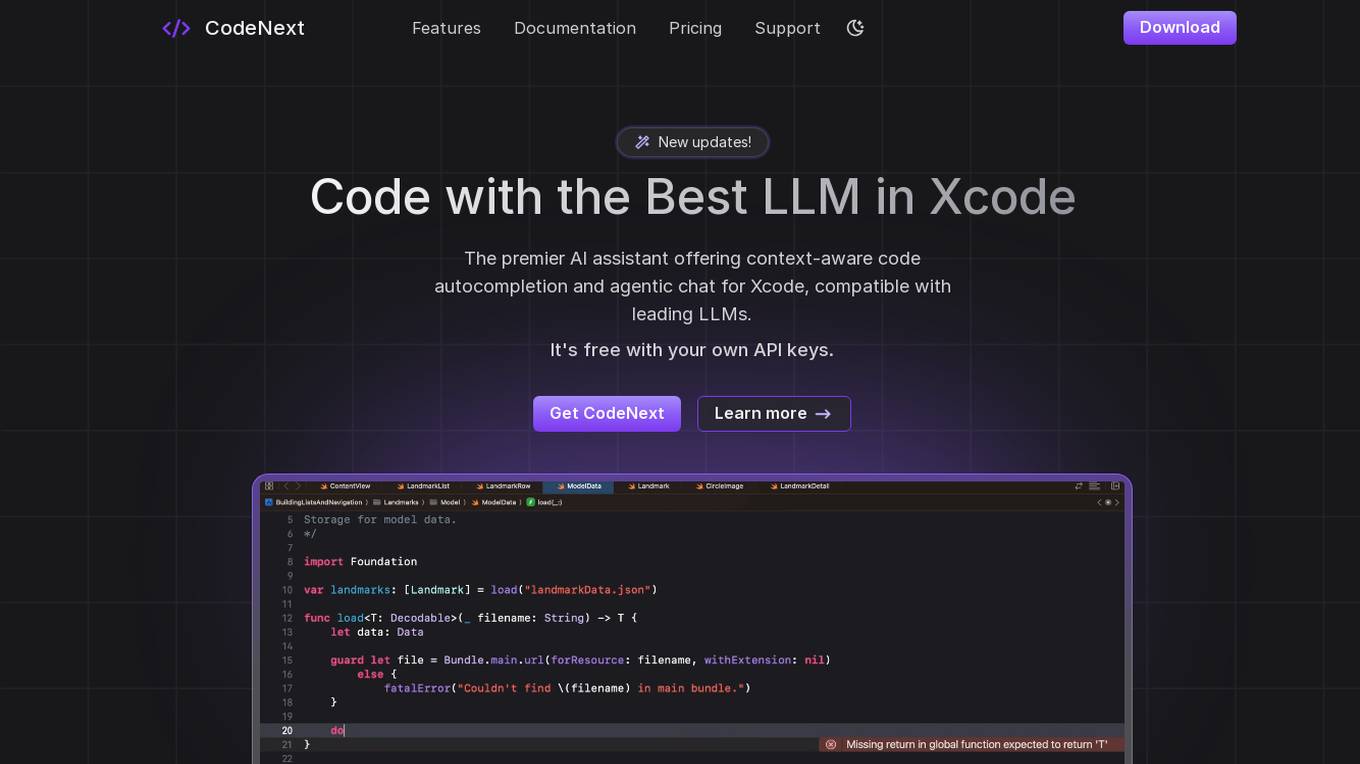
CodeNext.ai
CodeNext.ai is a premier AI assistant designed for Xcode developers, offering context-aware code autocompletion and agentic chat capabilities. It supports leading LLMs and provides features like autocomplete, chat agents for coding questions, custom chat plugins, compatibility with various LLMs, scopes for accuracy, and dark theme customization. CodeNext aims to enhance coding efficiency and productivity by providing intelligent code suggestions and natural language interactions within the Xcode environment.
1 - Open Source AI Tools
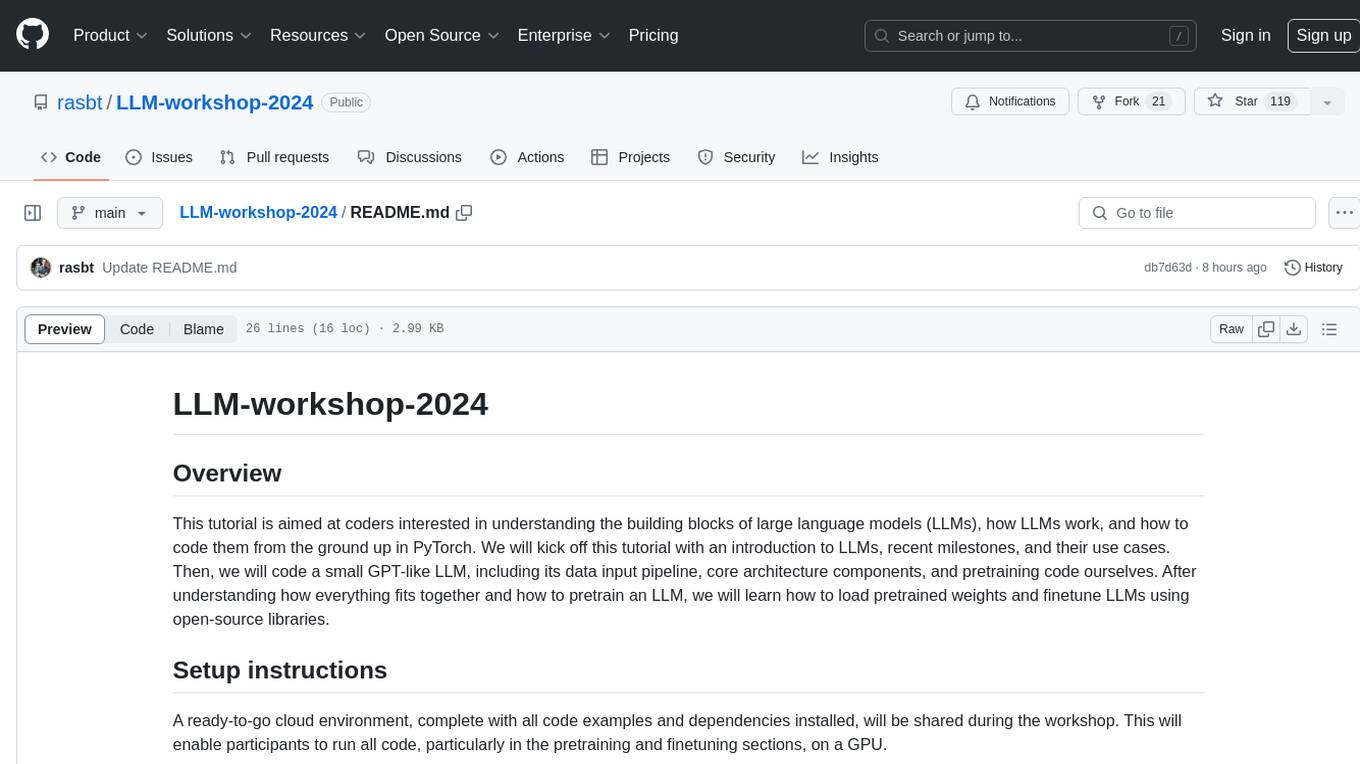
LLM-workshop-2024
LLM-workshop-2024 is a tutorial designed for coders interested in understanding the building blocks of large language models (LLMs), how LLMs work, and how to code them from scratch in PyTorch. The tutorial covers topics such as introduction to LLMs, understanding LLM input data, coding LLM architecture, pretraining LLMs, loading pretrained weights, and finetuning LLMs using open-source libraries. Participants will learn to implement a small GPT-like LLM, including data input pipeline, core architecture components, and pretraining code.
20 - OpenAI Gpts
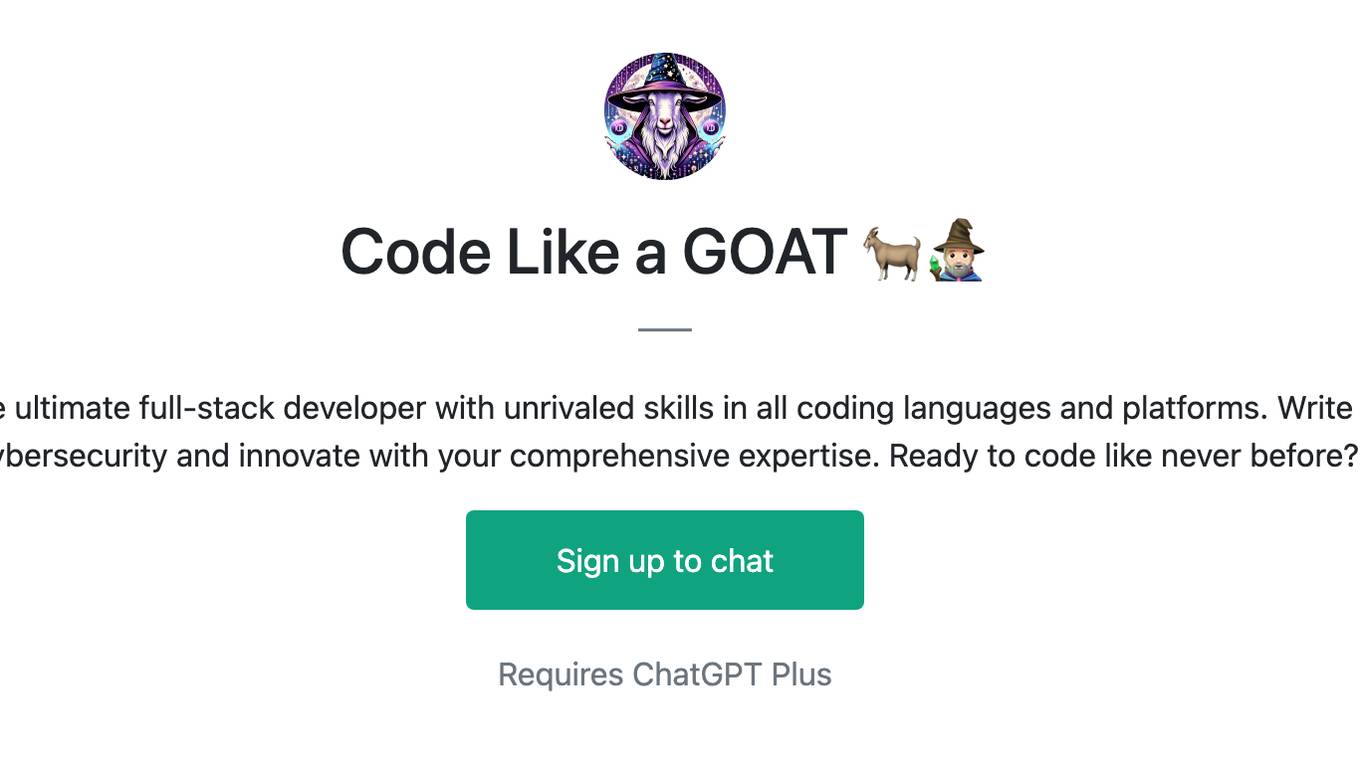
Code Like a GOAT 🐐🧙🏻♂️
Unleash Your Inner GOAT in Coding! Be the ultimate full-stack developer with unrivaled skills in all coding languages and platforms. Write elegant, secure code, and more. Excel in cybersecurity and innovate with your comprehensive expertise. Ready to code like never before?
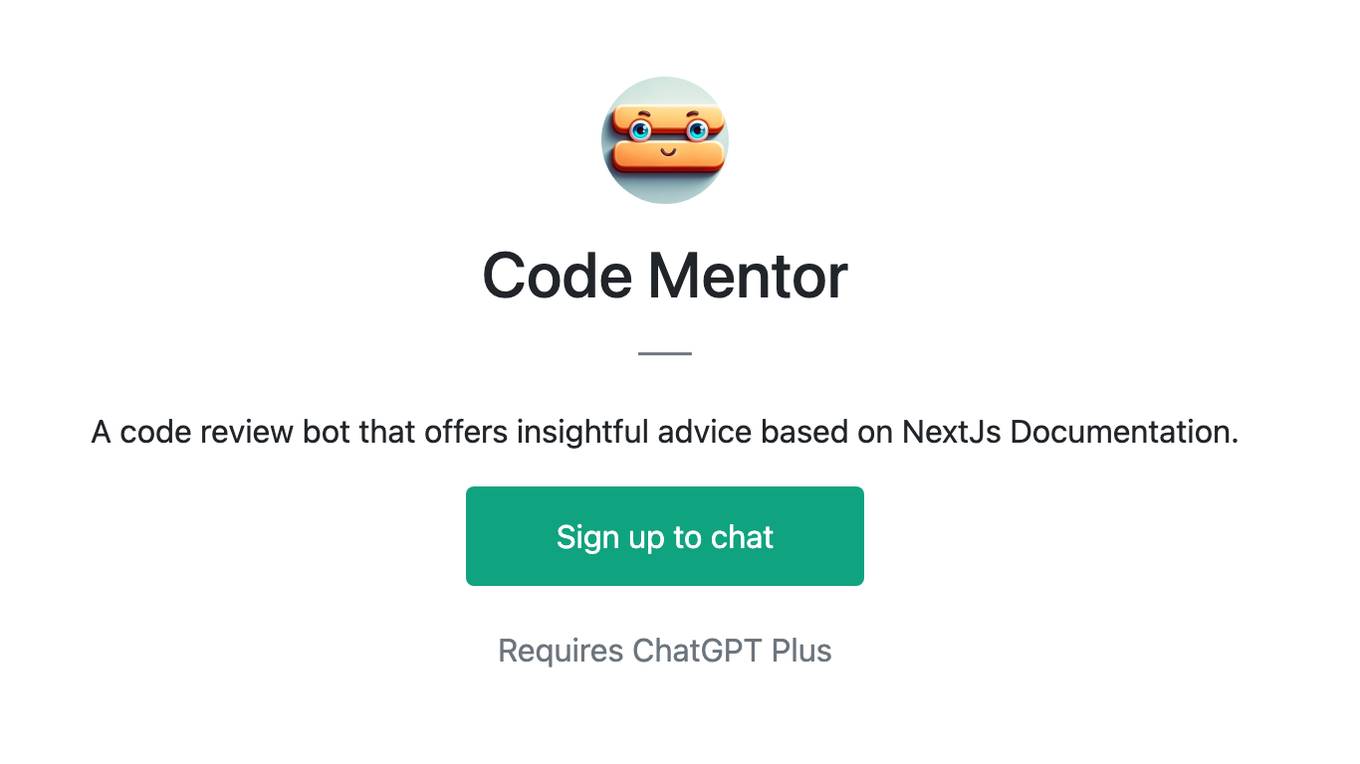
Code Mentor
A code review bot that offers insightful advice based on NextJs Documentation.
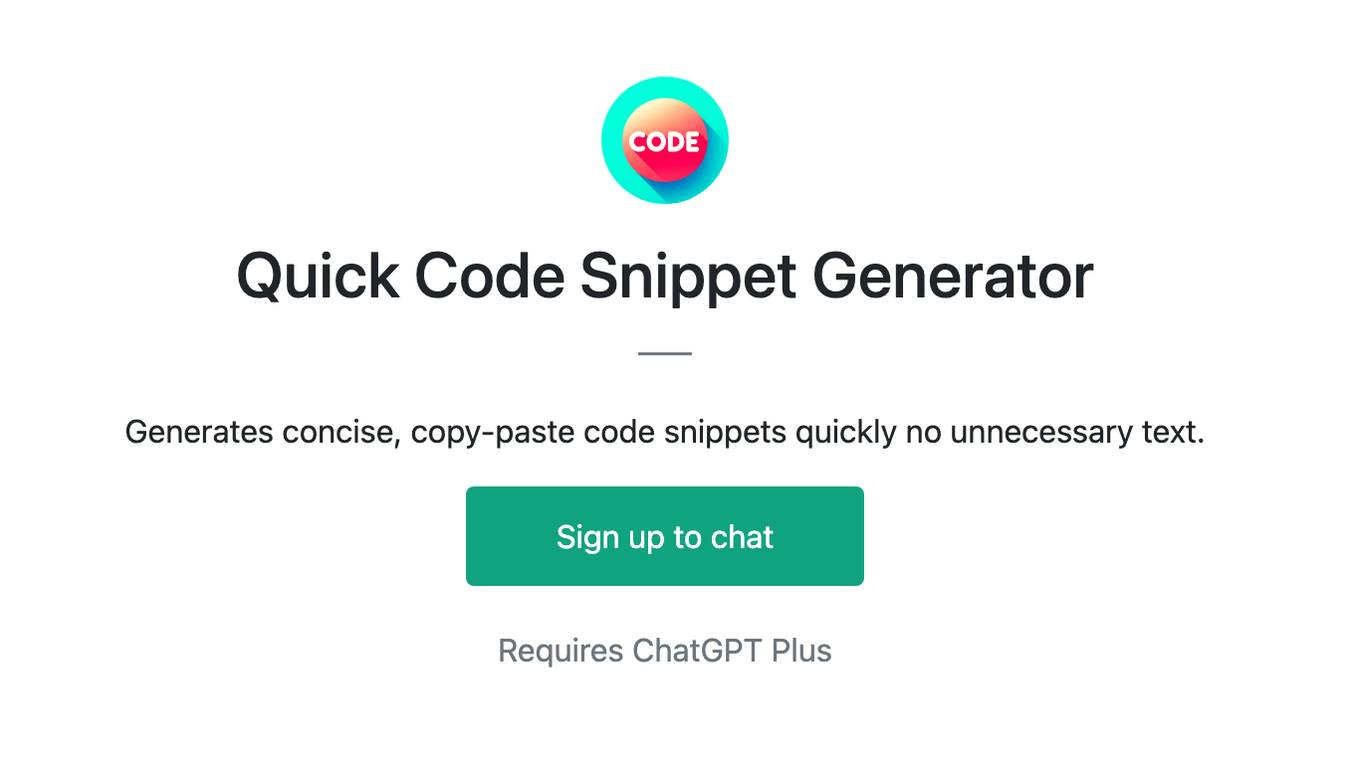
Quick Code Snippet Generator
Generates concise, copy-paste code snippets quickly no unnecessary text.


